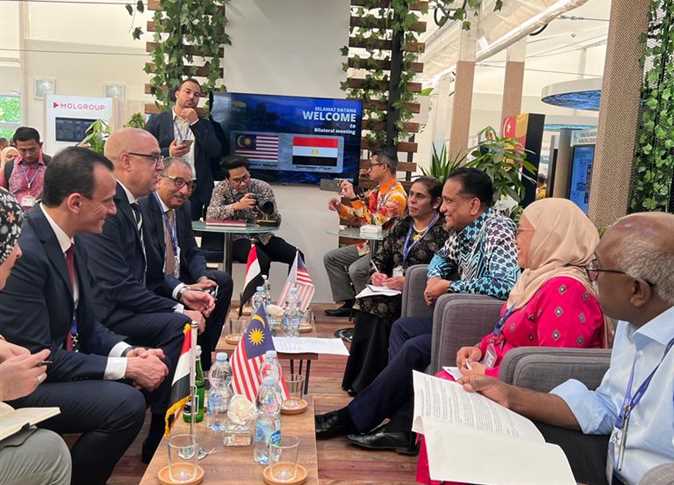Egypt’s Housing Minister Assem el Gazzar and Local Development Minister Mahmoud Shaarawi opened on Tuesday the Egyptian pavilion at the 11th session of the World Urban Forum (WUF11), held in Katowice, Poland.
The forum is held under the theme “Transforming Our Cities for a Better Urban Future.”
Following the opening, the two ministers reviewed the national projects and pioneering experiences in Egypt in the field of housing and urban development, and the substantial progress achieved by the Egyptian State in this sector over the past eight years.
On the sidelines of the forum, the housing minister held a series of plenary meetings with delegations of the participating countries to discuss means of boosting bilateral cooperation.
Gazzar also posted them on Egypt’s experiment in urban development.
He also met the Bahraini housing minister and his accompanying delegation, as well as the delegations of Saudi Arabia, Senegal, Malaysia, Zimbabwe, Angola, and other countries participating in the forum.
During his meetings with the delegations, Gazzar reviewed opportunities for enhancing joint cooperation in the area of urban development, as well as the great leap that has been achieved in Egypt over the past years since President Abdel Fattah El Sisi took the helm, citing the establishment of new cities with integrated services to achieve the first goal of the the National Strategic Plan for Urban Development.
Gazzar also highlighted genuine efforts exerted by the Egyptian State to provide housing units for different segments of society and eliminate unsafe slum areas.
This global event on sustainable urbanization is convened every two years by the United Nations Human Settlement Program (UN-Habitat), and this time, it is co-organized by the Polish Ministry of Development Funds and Regional Policy and the Katowice City Office.
The WUF is one of the main occasions to take a closer look at the most challenging issues facing the world today: rapid urbanization and its impact on communities, cities, economies, climate change and politics.
“The long term outlook is for a world that will continue to urbanize over the next decade: today, 56% of the world’s population lives in cities, by 2030, it will be 60%”, UN-Habitat said.
“Urban areas are the engines that will absorb virtually all future global population growth. All regions are expected to become more urbanized in the next ten years. Clearly, this says that the future of humanity is undeniably urban and that cities must be well planned in order to ensure sustainability, equity and shared prosperity,” it added.






Discussion about this post